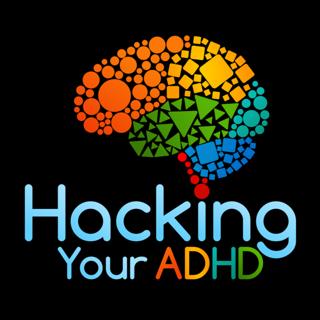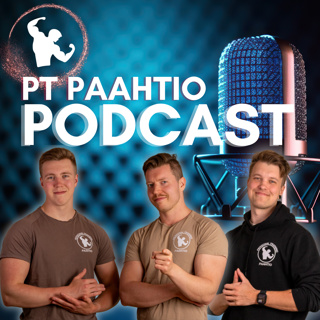
Body First Healing: Releasing Stress and Trauma with Britt Piper
Hey Team! This week I’m talking with Britt Piper, a somatic experiencing practitioner, trauma educator, and author of Body First Healing. Britt’s work focuses on understanding how trauma impacts the nervous system and brings both professional expertise and a deeply personal understanding of what it means to heal. In our conversation, we start with Britt's story and then we dive into what somatic therapy actually looks like, how trauma can live in the body long after the mind “knows” we’re safe, and why the nervous system often gets stuck in survival mode. We also get into the science behind stress responses, intergenerational trauma, and practical ways to start listening to your body’s signals instead of fighting against them. Also, just as a quick note before we get into it, today’s episode includes discussion of trauma, including mentions of sexual violence, substance abuse, and suicidal thoughts. If these topics are sensitive for you, please take care while listening - feel free to skip ahead or pause when needed. Books Body First Healing by Britt Piper The Body Keeps the Score by Bessel van der Kolk It Didn’t Start With You by Mark Wolynn Therapy & Practitioner Resource Somatic Experiencing International - https://traumahealing.org/ The Embody Lab - https://www.theembodylab.com/ Britt’s Body First Healing Program - https://www.bodyfirsthealing.com/ If you'd life to follow along on the show notes page you can find that at https://HackingYourADHD.com/234 https://tinyurl.com/y835cnrk - YouTube https://www.patreon.com/HackingYourADHD - Patreon This Episode's Top Tips 1. Somatic practices are body-based approaches to healing that focus on how trauma and stress are held in the nervous system rather than just the mind. They employ gentle techniques, such as tracking body sensations, subtle movements, and breath, to help the body complete its stress response cycles. 2. SI-BAM is a tool from Somatic Experiencing that helps track your internal state when emotions feel vague or difficult to name. It stands for Sensation, Image, Behavior, Affect (emotion), and Meaning. It begins by noticing physical sensations (such as tightness, warmth, or buzzing), and then observing if any mental images arise. It is followed by observing your body’s behavior or impulses (fidgeting, leaning forward) and from there checking for any identifiable emotions, and noticing what meaning or story you attach to the experience. 3. If you feel stuck in the same emotional patterns and if stress, anxiety, or trauma seem to “live” in your body, showing up as chronic tension, pain, or fatigue, somatic therapy could be an option for you. Somatic work can give you tools to gently release that “stuck” survival energy and restore a sense of calm. 4. When dealing with trauma, you don’t have to go it alone, but it is also important to work with a practitioner who understands what they are doing. And understand that somatic therapy is just one of many options that you can use to help you get the help you need.
28 Heinä 44min

Research Recap with Skye: Default Mode Network
Welcome to Hacking Your ADHD. I'm your host William Curb and I have ADHD. On this podcast I dig into the tools, tactics and best practices to help you work with your ADHD brain. In this episode we’re going to be continuing our Research Recaps with Skye Waterson series In this series, we take a look at a single research paper and dive into what the paper says, how it was conducted, and try and find any practical takeaways. In this episode, we’re going to be discussing the Default Mode Network As this is a new series, we’re going to be figuring out what works and what doesn’t, and I’d love to hear what y’all think of it, so if you have thoughts, head on over to Hackingyouradhd.com/contact and let me know. New episodes of research recap will be coming out every other Friday. All right, let’s get on with the show. https://onlinelibrary.wiley.com/doi/10.1111/cns.14900 - Interference of default mode on attention networks in adults with attention-deficit/hyperactivity disorder and its association with genetic variants and treatment outcomes If you'd life to follow along on the show notes page you can find that at https://HackingYourADHD.com/233 https://tinyurl.com/56rvt9fr - Unconventional Organisation Affiliate link https://tinyurl.com/y835cnrk - YouTube https://www.patreon.com/HackingYourADHD - Patreon
25 Heinä 16min

The Belonging Paradox: Finding Your Place Without Losing Yourself with Dr. Otito Iwuchukwu
Hey team! Our guest today is Dr. Otito Iwuchukwu, who is here to talk about the emotional and psychological aspects of belonging and how it impacts our day-to-day lives. Dr. Iwuchukwu has a Master of Arts in Organizational Psychology from the College of Psychology and Counseling, a Ph.D. in Pharmaceutical Sciences, with a specialization in Drug Metabolism and Pharmacokinetics, from Temple University, and is currently an Associate Professor at Fairleigh Dickinson University. Her scholarly contributions appear in a range of peer-reviewed and indexed publications and have been presented at numerous research meetings and symposia across the world. Additionally, Dr. Iwuchukwu has recently written The Belonging Paradox, a book that presents a new way to understand belonging as an adaptive journey rather than a static destination. In this episode, we talk about why belonging is a dynamic, ongoing process, not a fixed state, and how we can create more inclusive environments for ourselves and others. We’ll also discuss how masking impacts our sense of belonging, the role boundaries play in maintaining our authenticity, and the importance of giving ourselves and others grace. If you’ve ever struggled with finding your place, especially in social settings or work environments, you’ll find practical tools in this conversation for navigating those tough moments. The Belonging Paradox - https://www.otitoiwuchukwu.com/new-book/ Dr. Otito Iwuchukwu on LinkedIn - https://www.linkedin.com/in/otitoiwuchukwu/ If you'd life to follow along on the show notes page you can find that at https://HackingYourADHD.com/232 https://tinyurl.com/y835cnrk - YouTube https://www.patreon.com/HackingYourADHD - Patreon This Episode's Top Tips 1. Belonging isn’t a fixed state, but an ongoing process that changes with both your internal state and the external environment. Recognizing this can help you manage expectations and frustrations when your sense of belonging fluctuates. 2. Recognize that you don’t have to belong to every group, and not all groups are meant for a deep, personal connection. Don’t force yourself to belong in every situation; if a group or environment doesn’t feel right, it’s okay to step back. 3. You don’t have to be liked by everyone. Instead, it’s important for us to focus on finding spaces where we can truly belong. It’s about finding authentic connections, not chasing superficial acceptance.
21 Heinä 36min

Beyond Task Management: Exploring ADHD and Emotions w/Valerie McIntyre
Hey team! In today’s episode, I’m chatting with Valerie McIntyre, a Licensed Professional Counselor, an ADHD-Certified Clinical Services Provider, and the author of A Journey to a Valiant Mind, a book that dives into navigating ADHD with resilience and self-compassion. In our conversation, we dive into how ADHD isn’t just about task management, but how, more often than not, it's also about emotional regulation. Valerie talks about the complex emotions that come with ADHD, especially for late-diagnosed individuals, and how those feelings often get tangled up with shame and self-judgment. We also touch on how perfectionism, rejection sensitivity, and even seemingly small tasks can build up into emotional barriers. Valerie’s approach emphasizes compassion, and this episode is filled with tools to help you break free from self-doubt and cultivate a more positive, empowered relationship with your ADHD. If you'd life to follow along on the show notes page you can find that at https://HackingYourADHD.com/231 https://tinyurl.com/y835cnrk - YouTube https://www.patreon.com/HackingYourADHD - Patreon This Episode's Top Tips 1. It’s important to recognize that emotional struggles are often rooted in our internalized beliefs about our ADHD symptoms. These beliefs shape how we perceive ourselves and what we’re able to accomplish, and our emotional responses. 2. Often, there can be a struggle when shifting from one task to another. If we can acknowledge that there may be a delay in how your brain transitions between tasks and give ourselves time to adapt, we can make those transitions easier. 3. We can use reflective exercises, like journaling or discussion questions, to gain insight into our emotional triggers. This can help us identify better coping mechanisms that actually address the underlying issues we’re trying to overcome.
14 Heinä 53min

Research Recap with Skye: Emotional Regulation
Hey team welcome to another episode of Hacking Your ADHD Im your host, William Curb and this week we’re starting a new series on the show, Research Recaps with Skye Waterson. In this series we’re going to be taking a look at a single research paper and diving into what the paper says, how it was conducted and any practical take aways. In this first episode of the series we’re going to be exploring a paper called Emotional regulation as a core symptom of ADHD. As this is a new series we’re going to be figuring out what works and what doesn’t and I’d love to hear what y’all think of it, so if you have thoughts head on over to Hackingyouradhd.com/contact and let me know. New episodes of research recap will be coming out every other Friday. All right, let’s get on with the show. If you'd life to follow along on the show notes page you can find that at https://HackingYourADHD.com/230 https://tinyurl.com/56rvt9fr - Unconventional Organisation Affiliate link https://tinyurl.com/y835cnrk - YouTube https://www.patreon.com/HackingYourADHD - Patreon
11 Heinä 15min

Dialing Your Dopamine with Skye Waterson
Hey team! This week we’ve got a returning guest - Skye Waterson, founder of Unconventional Organisation and host of the ADHD Skills Lab podcast. Skye’s background includes studies in Psychology, Sociology, and Public Health, and she’s spent over seven years helping late-diagnosed adults create sustainable ADHD strategies. And one of the exciting things that has come from this episode is that Skye and I are going to be doing a spin-off series of the show that focuses exclusively on the research side of ADHD. In these new episodes, we’ll be taking a look at a single research paper and discussing the ins and outs of what the paper says and how it was conducted, as well as trying to give any practical takeaways that will can drum up. Episode lengths are going right back to the origins of this podcast, so we’re aiming for something 15-20 minutes long, but packed with information. Right now, we’re just going with the name Research Recap with Skye, so we’ll see if we come up with anything a bit more clever than that. Now, if that sounds like something you’re interested in, good news, you don’t have to do anything; these episodes are going to be coming out on the Hacking Your ADHD feed, so they’ll come up right along with all your other podcast downloads. These episodes are going to be coming out every other Friday starting this Friday, July 11th - and as a little preview we're gonna be talking about a paper called “Evidence of Emotion Dysregulation as a Core Symptom of Adult ADHD: A systematic review” - I know, it sounds riveting, and actually, I think we do a pretty good job with it. But enough on that, let’s jump into what this episode you’re listening to right now is about. In this episode, we’re talking about dopamine and dopamine transfer deficit theory, and Skye lays out her concept of the dopamine dial. We cover everything from how our brains misfire on rewards to fidget toys, and why doom-scrolling on your third screen might not be giving you the kind of stimulation you think it is. This episode is all about dialing it in instead of shutting it all down. https://tinyurl.com/4u4av4s4 - An ADHD Academic's Answer to the Dopamine Detox by Skye Waterson https://tinyurl.com/56rvt9fr - Unconventional Organisation Affiliate link If you'd life to follow along on the show notes page you can find that at https://HackingYourADHD.com/229 https://tinyurl.com/y835cnrk - YouTube https://www.patreon.com/HackingYourADHD - Patreon This Episode's Top Tips 1. The dopamine dial is a mental model that helps you modulate your level of stimulation, rather than flipping an on/off switch. Instead of quitting stimulating activities all at once (e.g., trying a dopamine detox), you dial down your stimulation in steps. 2. Doing the hard thing now and waiting for the reward later often doesn’t land. Instead, we often need to feel a reward during the process, not just at the end. We can use the dopamine dial to reward ourselves with just enough stimulation to stay engaged without pushing our brain into full-blown distraction or burnout mode. It’s not about denying ourselves stimulation, it’s about using it intentionally and dialing it to the right level. 3. Try negotiating with your brain when you're feeling emotionally overwhelmed or hyper-focused on a desire, such as feeling like you just need to play a video game right now. Try taking a 10-minute breather to reassess those feelings rather than trying to force or deny that urge outright.
7 Heinä 44min

Simple Isn’t Easy: ADHD Advice You’ll Actually Use w/ Dr. Ari Tuckman
Hey Team! This week, I’m talking with Dr. Ari Tuckman, a psychologist, certified sex therapist, and one of the most well-known voices in adult ADHD. Ari brings over 25 years of clinical experience to the table, along with his new book, The ADHD Productivity Manual, which takes a honest look at the tools we use, and why they sometimes don’t work the way we want them to. It was actually funny, before the call, we were joking about how it's funny that our orbits hadn’t crossed before - well, I do get into one anecdote about attending a talk he gave in 2019, but that’s basically as close as we’d interacted before this. In our conversation, we unpack how shame and comparison can hijack our energy, how to set reminders that actually help instead of hinder, and why simple doesn’t always mean easy. We also touch on what it means to communicate your needs assertively (without over-apologizing) and why trying to do everything perfectly is the fastest route to doing nothing at all. There’s a ton of easy-to-access, actionable advice in this episode. I had a ton of fun with it, and I think you’ll love it too. If you'd life to follow along on the show notes page you can find that at HackingYourADHD.com/228 YouTube Patreon This Episode's Top Tips 1. Include contextual details in your reminders. Put the address, building name, or even office location in the event title so you don’t show up on time or in the wrong place. 2. Distinguish between “simple” and “easy.” Just because a task is straightforward (like taking out the trash) doesn’t mean it’s easy to do, especially with ADHD. 3. Be strategic with your best focus time. Don’t “spend gold on garbage” - use your high-focus hours for harder tasks, not emails or unloading the dishwasher. Do less, but do it on purpose. Sometimes productivity means pulling back and intentionally choosing what not to do, instead of doing everything poorly.
30 Kesä 41min

You Might Also Like: Sorry, I Missed This from Understood.org
When you’ve got ADHD, it can be hard to navigate relationships, be they with friends, coworkers, your kids, or your significant other. That’s why I want to introduce you to another show today. It’s called Sorry, I Missed This. In the show host and sex educator Cate Osborn explores questions like: How do I know what I want out of a relationship? How do I remember my friends exist? What can I do to handle conflict better? I’ve been recently listening to Sorry I Missed This, and it’s just been so much fun to listen to. Cate, or Cateosaurus as she’s known on the socials, is incredibly charming, and she brings so much real-world experience with her in these episodes that the conversations feel both grounded and enlightening. The episode I’m about to play for you is about the influence of ADHD on social skills - I got a lot out of this episode, and I think you will too. Be sure to subscribe to Sorry I Missed This in your podcast player!
23 Kesä 40min





















